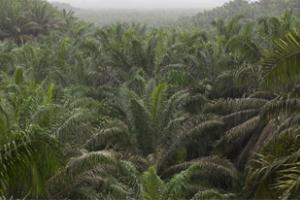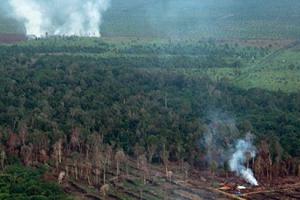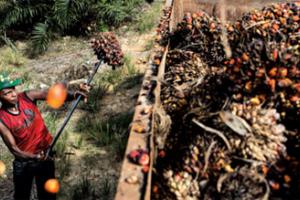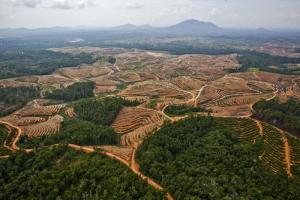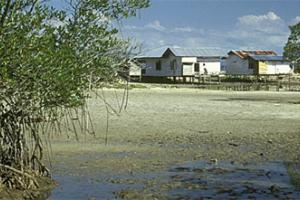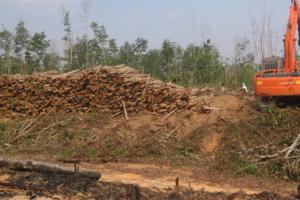Indonesia
Bulletin articles
7 March 2014
Other information
5 February 2014
Other information
23 December 2013
Eight activists of Robin Wood, a grassroots group in Germany, were sued in October 2013 for taking part in a peaceful demonstration to protect Indonesian rain-forests. In September, the activists hung a banner at Wilmar‘s palm oil refinery plant in Germany saying "Wilmar's refined destruction - No palm oil from deforestation". They were convicted for "assault".
Other information
23 December 2013
On 16 May, 2013, the Indonesian Constitutional Court issued a decision confirming that Customary Forests are forests located in Indigenous territories, and should no longer be considered as State Forests.
Indigenous Peoples throughout Indonesia welcomed the Constitutional Court's decision and started rehabilitating their territories which have been damaged by the activities of companies who were given licenses to operate by the State.
Bulletin articles
23 December 2013
Photo: E. Benjamin Skinner
Malaysia
Malaysiahas become a destination for migrant workers from other Southeast Asian countries– mainly Indonesia, Thailand, andBangladesh – who usually occupy low-wage unskilled jobs in different sectors including the labor-intensivepalm oil industry.
Bulletin articles
31 October 2013
Sumatra Copper Ltd.
Bulletin articles
11 September 2013
Here in Indonesia, ever since a child entered the school, he/she has been familiar with “Merauke” through a patriotic song entitled “Dari Sabang Sampai Merauke” (lit. from Sabang to Merauke – from the westernmost to the easternmost part of Indonesia). The song talks about the unity and glory of Indonesia across its large and small islands reaching from Sabang, the westernmost part, to Merauke, the easternmost.
Other information
11 September 2013
Solo disponible en inglés -
Agribusiness large-scale land acquisitions and human rights in Southeast Asia - Updates from Indonesia, Thailand, Philippines, Malaysia, Cambodia, Timor-Leste and Burma
Forest Peoples Programme, August 2013
By Marcus Colchester, Sophie Chao, Jonas Dalliner, Su Mei Toh, Chan Kiev, Indriaswati Saptaningrum, Mark Anthony Ramirez and Juan Pulhin
Ed: Sophie Chao, Forest Peoples Programme
Other information
11 September 2013
Agribusiness large-scale land acquisitions and human rights in Southeast Asia - Updates from Indonesia, Thailand, Philippines, Malaysia, Cambodia, Timor-Leste and Burma
Forest Peoples Programme, August 2013
By Marcus Colchester, Sophie Chao, Jonas Dalliner, Su Mei Toh, Chan Kiev, Indriaswati Saptaningrum, Mark Anthony Ramirez and Juan Pulhin
Ed: Sophie Chao, Forest Peoples Programme
Bulletin articles
30 July 2013
According to The World's Mangroves 1980-2005 (FAO 2007), Indonesia has the largest mangrove area in the world in terms of the extent of the region. However, the condition of mangroves has declined both in quality and quantity from year to year. In 1982, Indonesia's mangrove forests covered an area of 4,25 million ha, while in 2009 it was estimated to be less than 1,9 million ha (KIARA, 2010).
Other information
30 July 2013
The People’s Coalition for Fisheries Justice Indonesia (KIARA) celebrated the World Mangrove Day issuing a press release where it “urged the government to immediately conduct a revocation of the business license and or development projects (oil palm plantations, shrimp farms, coastal reclamation, and so on) that causes the loss of mangrove forests.
Bulletin articles
30 June 2013
The emergence of “Paper Dragons”. (Available in Indonesian).
